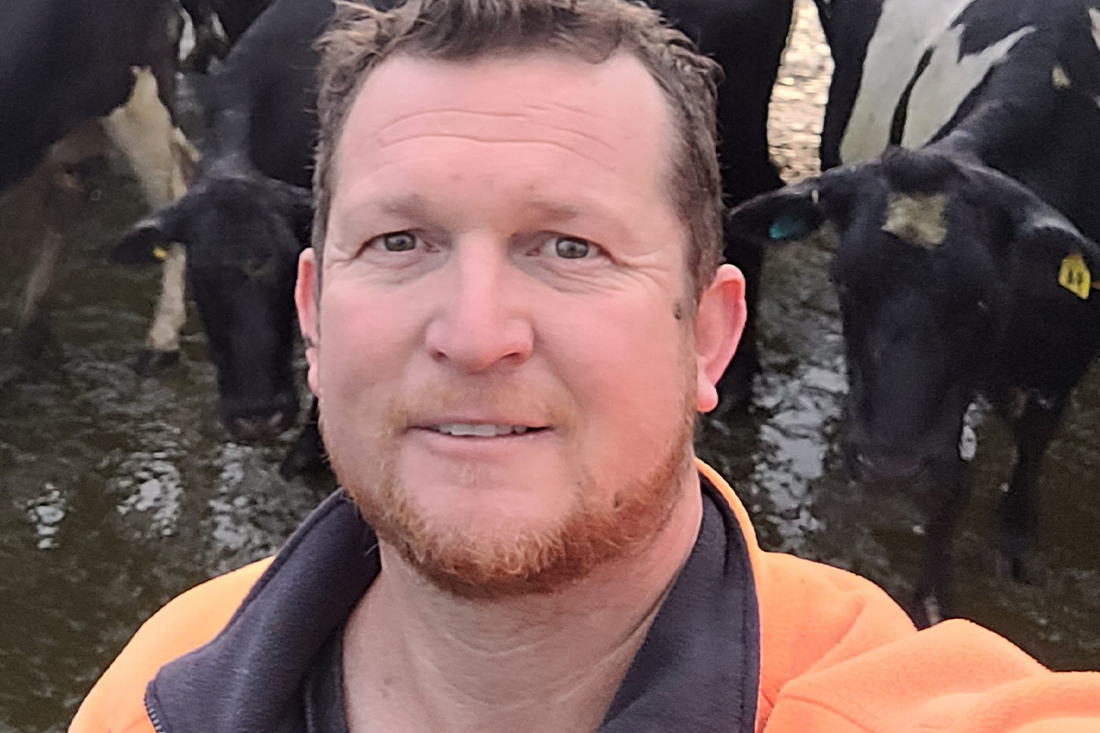The Co-op’s Milk Quality Managers work nationwide providing farmers with independent advice on reducing bulk somatic cell counts, improving efficiency in the milking shed, and increasing productivity.
We talk to Taranaki-based Tim House about the role and his career evolution from sports management to farming.
From townie to Taranaki farmer
Unlike many of my colleagues, I didn’t grow up on a farm. I was a born-and-bred townie from the Kapiti Coast and Lower Hutt. My parents were both teachers, and my world revolved around sport.
I represented Wellington in tennis and hockey before heading to university to study sports management and business.
After graduating, I spent time teaching in Germany and later ran education franchises in Wellington. That’s where I met my wife, who grew up on a dairy farm in Taranaki. After a few years in the city, we felt the pull of a change of pace and approached her parents about taking over the family farm.
They laughed – and fair enough!
I had zero farming experience, and my wife barely knew where the shed was. Determined to prove ourselves, we spent months driving up every weekend, milking cows, fixing fences, and learning the ropes. Eventually, we made the move in 2007, and I became my father-in-law’s apprentice.
I started at the bottom – learning everything the hard way, making plenty of mistakes, and getting more than a few electric shocks while figuring out the fences. Over time, I progressed from being his dog’s body to farm manager, contract milker, and finally leasing the whole operation.
How I help farmers today
By the 2022/23 season, I realised I’d reached the end of my personal farming journey. I loved the farm, but after a back and ankle injury, I wasn’t able to give it my all. We leased out the farm but kept 10 hectares and 40 beef cattle (which cause me more headaches than 120 dairy cows ever did!).
I moved into farmer advocacy and policy work as a Regional Policy Advisor for Federated Farmers before taking on the Milk Quality Manager role at Farm Source – and it felt like the job was made for me. Now I support 1,300 farmers across Taranaki, from Mokau to Waverley, helping them lower somatic cell counts and reduce mastitis by identifying risk areas and implementing small but effective changes.
Other support services include Improving Milking Efficiency – reducing time spent in the shed without sacrificing milk quality, and helping farmers maximise farm performance by supporting them to use available resources, like demerit relief, to get expert support.
In addition to on-farm support, I run milk quality workshops for local farmers, where we cover everything from lowering somatic cell counts to boosting productivity. These workshops allow me to bring farmers together and share practical insights, so they can improve practices and make small changes that lead to significant results.
Many farmers don’t realise how small adjustments to seasonal practices and milking routines can lead to lower somatic cell counts, fewer mastitis cases, and better production. I know how easy it is to stick with what you know – I did the same thing myself. But the right tweaks can make a huge difference to milk quality, time savings, and profitability.
The best part of my job
The best part of my role is getting out on-farm, talking with farmers, and finding practical solutions. Every farm is different, and I work alongside farmers to make improvements that fit their system and goals.
At the end of the day, most people don’t get into farming because they love spending hours in the milking shed. If I can help make that process easier, faster, and more efficient, while improving milk quality and profitability, then I’ve done my job.
If you’d like to chat about reducing somatic cell counts, improving efficiency, or any milk quality challenge, feel free to reach out – I’m always keen for a farm visit!
 Tim House
Tim House
Book in for a Milk Quality Service Visit
Your Milk Quality Manager will meet you on-farm to provide free, independent advice on potential opportunities to reduce your farm’s bulk somatic cell count and/or to save you milking time in the shed. After your visit, you will receive a detailed report outlining our evaluation and advice.